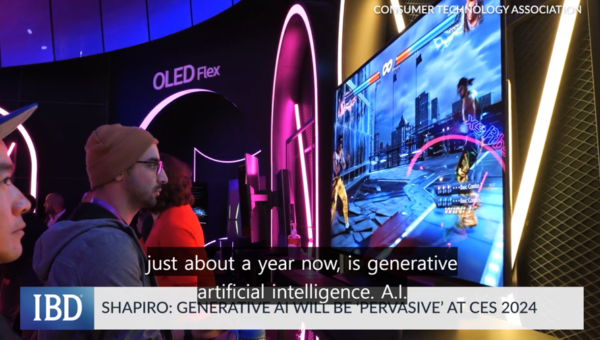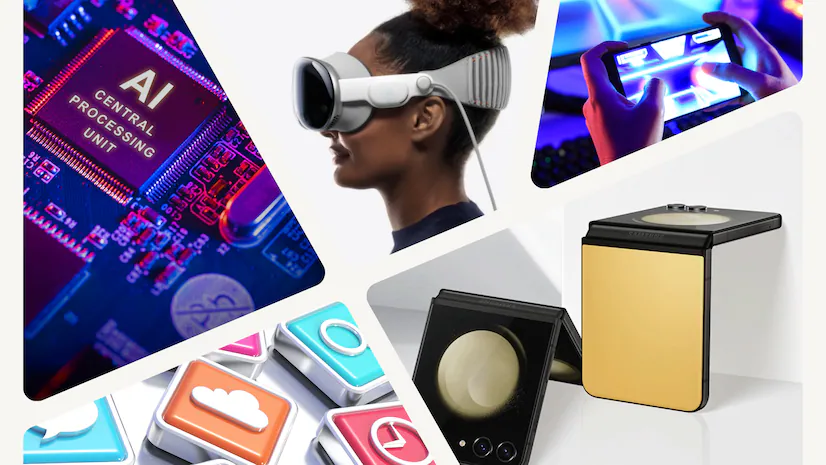CES 2024 is happening in full swing in Las Vegas.
Now simply called CES, the Consumer Electronics Show is a highly anticipated annual IT show that features all the latest and groundbreaking technology across industries. It’s an unmissable event that opens the year.
This year’s show takes place in Las Vegas from the 9th to the 12th, local time. The convention expects about 130,000 in-person attendees and a total of more than 4,000 companies, including over 60% of Fortune 500 companies.
CES 2024 is also attracting attention with its impressive keynote lineup. Major executives, including Siemens CEO Roland Busch, L’OREAL CEO Nicolas Hieronimus, Intel CEO Patrick Gelsinger, and HD Hyundai Vice Chairman Chung Ki-sun will be taking the stage.
AI as the key theme of CES 2024
The theme for CES 2024 is “All together, All ON.” While CES covers a wide range of technologies across various industries, this year, it will be highlighting four main themes more than the others. These themes are artificial intelligence (AI), Human Security for All (HS4A), mobility, and sustainability.

Among the four, the hottest topic for CES 2024 is undoubtedly artificial intelligence. “AI is the story of the show,” according to Gary Shapiro, President and CEO of the Consumer Technology Association (CTA), who hosts and organizes CES.
AI tech and services, like generative AI, have brought a sensation throughout the industry. They have begun to permeate many aspects in our daily lives. As a principal analyst at Forrester aptly comments, “perhaps the question to ask is what AI will not touch this year.”
Artificial intelligence technology is no longer solely applicable in traditional B2B products and services like chips and cards, but also in devices and gadgets intended for B2C consumers.


(CTA Founder and CEO Gary Shapiro (on the right side in the first image). Source: investors.com)
Highlighted by CES 2024: On-Device AI
In that case, what is the next innovative AI technology that can change the landscape of how consumers use AI?
On-device AI has the highest potential to be the major form of AI that will influence how consumers use the tech. As the name suggests, on-device AIs feature a compact machine learning system within a device.
When it comes to artificial intelligence technology, we often think of the cloud system. It refers to the centralized system wherein a user’s prompt gets transmitted to the central cloud server for processing, and the resulting value is sent and printed on the user’s device. Most online chatbots and translation services use this system.
While the cloud system has advantages, including scalability and cost effectivity, it also has limitations. Security and connectivity are two of them. As requests from multiple users are processed through a single central server, the security of user information can be compromised. Additionally, this system requires internet connection in order for the user’s request to be processed. We cannot use AI services that use cloud systems somewhere without internet, like during flights.

On-device AI emerged as an effective solution to overcome these limitations. Integrating its very own AI system within a device means it would not compromise user privacy. It would also require no internet connection to enjoy its services. Users can also enjoy customized AI engines that suit their needs.
Key takeaways
CES 2024 is a ground for visitors to witness the world’s cutting-edge technology in one place. It’s a place to have a closer look ahead on what the upcoming products will look like.
Today, more and more AI-integrated products are entering our daily lives through various electronic devices and home appliances. Considering inclusiveness and diversity is key to welcoming this novel technology, especially as the time of on-device AIs has already begun.
High-quality, up-to-date datasets are essential in achieving a safe and reliable AI system. Some experts predict that on-device AIs will have a similar impact on our daily life as much as smartphones did when they replaced cameras.

There’s still room for improvement for on-device AI systems. For instance, for an on-device system to be truly revolutionary, real-time machine learning must be possible in an on-device environment. Utilizing personal data for training would result in more accurate and optimized AI services over time. To ensure this technology is realized safely, securing and training the model with high-quality datasets are essential.
As Korea’s leading language data company, Flitto has helped train some of the best AI products with top-quality data. We’re excited to see more of the world’s cutting-edge AI technology through CES 2024.
